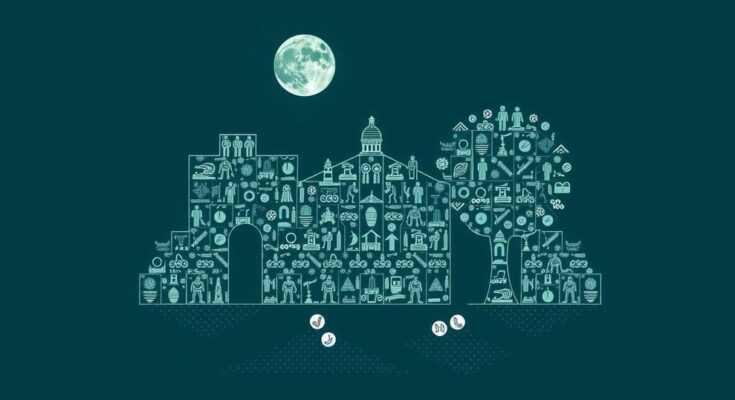India will participate in ICJ hearings on December 5 regarding state obligations on climate change. The hearings, starting December 2, involve 97 states and 11 organizations, marking the largest ever at the ICJ. Significant input from UN officials highlights the need for stronger climate action. The outcomes may lead to a legal framework impacting environmental policy globally.
India is set to engage in a public hearing on December 5, as part of the ongoing proceedings of the International Court of Justice (ICJ) to obtain an advisory opinion on state obligations regarding climate change. These hearings commenced on December 2 and are slated to conclude on December 13 in The Hague, Netherlands. This case has garnered unprecedented participation with 91 written submissions and 62 responses, making it the largest hearing in the ICJ’s history, involving 97 states and 11 international organizations. Each party will have an opportunity to present their perspectives directly.
The significance of these climate change hearings cannot be overstated. UN Secretary-General António Guterres emphasized that the advisory opinion will assist the General Assembly and Member States to adopt more robust and decisive climate action in light of the escalating climatic emergencies. Such an opinion could also influence inter-state relations and the treatment of citizens within individual states, according to Guterres, who remarked, “It could also guide the actions and conduct of States in their relations with each other, as well as towards their own citizens.”
The hearings are particularly crucial for small island developing states, which were instrumental in advocating for the advisory opinion. The hearings occur amidst growing dissatisfaction among developing nations, including India, with the climate finance commitments made during COP29. While a promise of $300 billion annually for climate action by 2035 was made, developing nations had called for a mobilization of at least $1.3 trillion each year, showcasing the disparity in expectations.
Furthermore, countries that are cognizant of climate issues are enacting specific legislation to address climate change. Notably, India’s Supreme Court recently expanded the scope of fundamental rights to encompass the right to a life free from the adverse effects of climate change, highlighting the imperative to safeguard citizens from environmental degradation.
As the global community grapples with pressing climate challenges, these hearings hold the potential to establish a framework for accountability based on international legal responsibilities. The ICJ’s advisory opinion will clarify the legal obligations of participating states regarding climate action, although it is important to note that these opinions are not legally binding.
The International Court of Justice (ICJ) has initiated hearings to solicit an advisory opinion concerning the obligations of states in the context of climate change. This represents a significant legal development, considering that climate change is an increasingly urgent issue impacting global governance and international relations. In the wake of international meetings, such as COP29, where commitments to climate financing fell short of the expectations of developing nations, this advisory opinion seeks to clarify the legal framework within which states must operate to address climate-related challenges effectively. The participation of 97 countries and multiple organizations underscores the importance of creating a collective legal stance on climate obligations.
In summary, India’s participation in the ICJ’s climate change hearings is pivotal as it seeks to contribute to a broader understanding of state obligations under international law concerning climate action. The hearings not only provide a platform for voicing concerns from developing nations but also aim to guide future actions that address the pervasive impacts of climate change. The anticipated advisory opinion is expected to set a precedent that could influence national policies and international cooperation on environmental issues.
Original Source: www.outlookbusiness.com




